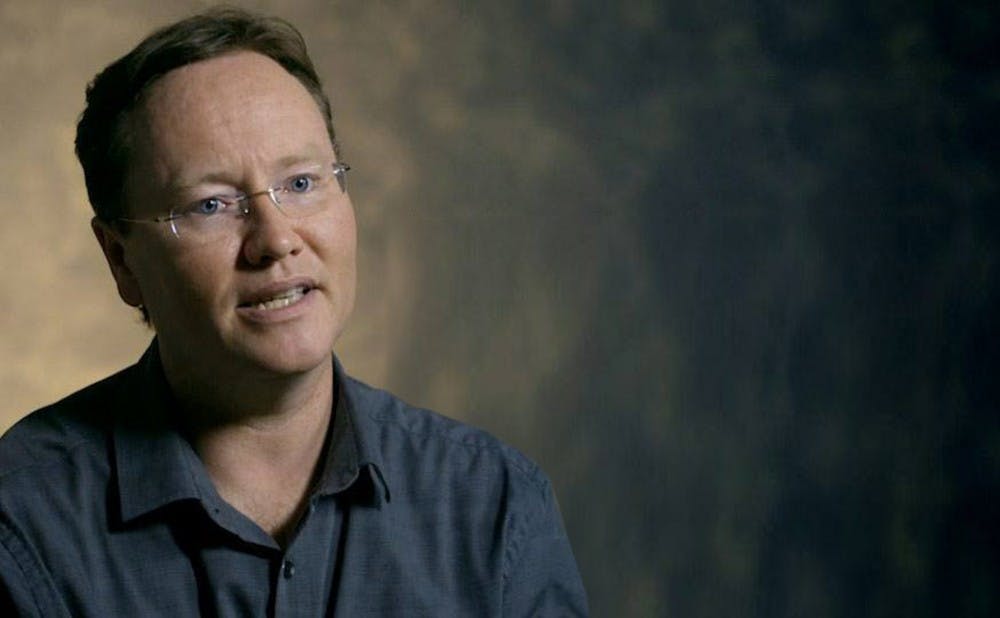Mark Goodacre, a professor in the department of religious studies, serves as the lead adviser for “Finding Jesus: Faith, Fact, Forgery,” a CNN series that uses scientific techniques and archeological research to analyze the life of Jesus. Its second season premieres Sunday at 9 p. m. The Chronicle's Sarah Kerman sat down with Goodacre to discuss his involvement with the show and the task of portraying academic research to a broader audience in a documentary drama format.
The Chronicle: How were you initially approached to be involved with the series?
Mark Goodacre: My involvement actually goes right back to about 2014. They wanted a consultant who knew broadly the area of historical research quite well. I’ve also worked on other documentaries and Bible-related programs, and I suppose that after a while your name gets known a little bit. If you’re lucky, you might get asked to do another one. So it’s quite often that one leads to another.
TC: What has the response to the show’s first season been like?
MG: It’s been pretty good. I was pleasantly surprised by how many people wanted to watch it. Because you kind of can imagine that a Sunday night at nine o'clock is the time when people want to be watching "The Walking Dead." Documentaries don’t get millions and millions of viewers, but the successful ones will get over a million, which is what CNN was getting regularly in that time slot in the first season. So that was encouraging. Part of the problem is that most academics don’t watch TV, and if they do watch TV, they want to watch it for escapism. They want to watch a detective show or something, so they’re not likely to be watching a documentary series. But those that have have been encouraging. Academics have always got—quite rightly—things that they don’t like about a given program, so I’ve been reasonably encouraged.
TC: The audience for the series is different than that of an academic article you would write. Taking that into account, how do you alter the way you’re presenting the information?
MG: I think it’s quite exciting for people who don’t know the history. It gives them another angle on stuff that they think they don’t know about, but you have to present the material very differently. The on-screen bit that I do in this, you’re really down to sound bites. You’re down to one, at most two sentences at a time, so that’s not the same as writing a 10,000 word article, which academics are generally much happier with. That gives some pressure, because obviously you can’t dive the depth of a thousand qualifications. You have to be succinct, you have to try and articulate your point as clearly, as quickly and as memorably as possible. They don’t actually want a huge amount of analysis because that’s not the time for it when you’ve got 43 minutes or so of actual screen time, and a lot of that is devoted, quite frankly, to drama and different kinds of investigations. So the amount of on-screen presence that you have of the academic experts is limited. That means you haven’t got a huge amount of time for analysis.
TC: Can you describe some misconceptions about the history of Jesus that you will address in the upcoming season?
MG: A lot of people don’t realize how much good archaeological evidence there is for elements that are parts of Jesus’ story. For example, there’s one episode called "The Childhood Home of Jesus"—it’s not actually Jesus’ house that’s been found, but it is a first-century house in Nazareth, where Jesus is said to have grown up, so you can get an idea of what kind of house Jesus would have grown up in. That’s useful information, contextual information that helps you to understand a bit more about the historical Jesus. I think one of the things that happens, believe it or not, when people talk about the Bible is it very quickly goes to matters of belief and doctrine, and understandably so. They very quickly go to "well, do I believe this," but actually sometimes it’s nice to get a bit of critical distance from things and sort of say "well, let’s put all of those questions to one side and let’s actually look at what we can say is reasonably certain." In what ways can we shed light on the historical context of Jesus’ life? That’s definitely one of the things I would like people to do. One of the things historians like to do is engage your imagination, but it’s easier to engage your imagination if we can know with some degree of certainty about integrity.
TC: Did you have a favorite episode to film?
MG: All the bits of me in this are me basically sitting in a dark room in New York, so no one episode was more enjoyable than the other. I did one 6-hour shoot in September 2015 and a 6-hour shoot in February of last year. The actual filming is not at all glamorous. When you’ve done a few of these, an hour can equate to a minute or two, so you get used to that. I would say that one of the most visually interesting episodes is on the apostle Thomas because Thomas, according to early Christian legends, went to South India, so there’s always been an interesting question about the stories that are told about Thomas in India. Visually, that episode is very interesting because you get lots of shots of India. I have a bit of an attachment to India as well and an attachment to the apostle Thomas, so I think that is one of the most arresting episodes, one of the most compelling ones.
Get The Chronicle straight to your inbox
Signup for our weekly newsletter. Cancel at any time.

